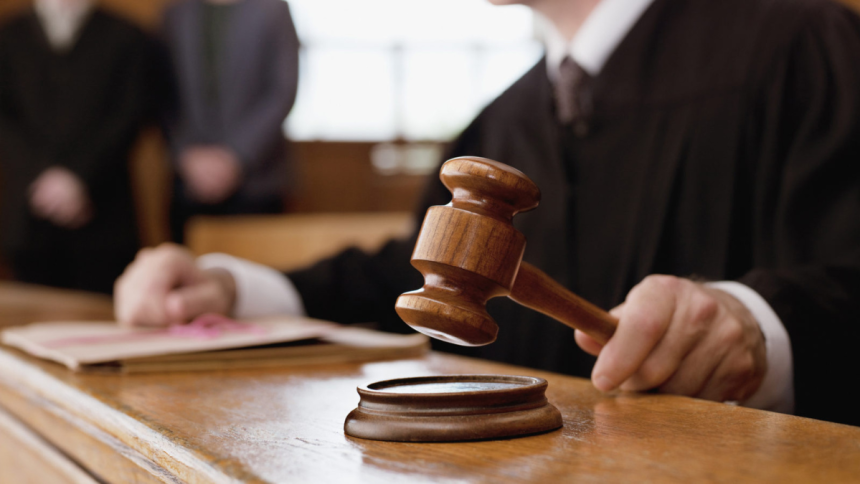The weight of criminal charges isn’t limited to the courtroom. Long before a verdict is delivered, the reality of legal costs begins to set in. The stress, the unknowns, the pressure to make smart decisions, all of it is amplified when finances are on the line. From hiring a defense attorney to covering court filing fees, expert witness payments, and more, estimating legal costs for a trial is something no one can afford to ignore. While the exact numbers vary based on the complexity of the case and the jurisdiction, there are common threads that shape what someone might expect to pay. Understanding those threads can help bring a little certainty to an otherwise unpredictable experience.
The First Step: Legal Representation
At the center of every trial is the defense attorney. Whether hiring a private attorney or qualifying for a public defender, representation plays the most significant role in both outcome and cost.
Private criminal defense attorneys typically charge in one of two ways: a flat fee or an hourly rate. Flat fees are more common in straightforward cases, while hourly billing tends to apply when the case involves multiple court dates, pretrial motions, or complex evidence.
Depending on the severity of the charges and the attorney’s experience, fees can range anywhere from $1,500 for a misdemeanor to well over $20,000 for a felony trial. And that doesn’t always include trial prep, appeals, or outside resources. Investing in a seasoned lawyer is not just about defense, it’s about strategy, guidance, and peace of mind.
Filing Fees and Administrative Costs
Though not the largest portion of the bill, court filing fees and administrative costs shouldn’t be overlooked. These can include:
- Court filing fees
- Subpoena service charges
- Copying and document handling costs
- Court reporter fees for depositions
These smaller expenses tend to accumulate over time. Depending on the jurisdiction, even basic motions may come with a fee, and every document handled through the court’s system may add to the total.
Expert Witnesses and Investigators
When a case hinges on technical information, such as DNA evidence, accident reconstruction, or psychological evaluations, expert testimony becomes essential. These experts don’t come cheap.
An expert witness can charge several hundred dollars per hour for case review, preparation, and in-court testimony. Fees often begin at $2,500 and can climb quickly depending on credentials and complexity.
Private investigators are sometimes used to track down witnesses, uncover critical facts, or validate claims. Their rates vary, but even moderate use can add thousands to a defense budget.
Bail and Bond Costs
While not directly related to trial preparation, bail and bond fees are common costs that arise as soon as someone is arrested. For those who choose to use a bail bondsman, a non-refundable fee, usually 10% of the full bail amount, is required upfront.
This means a $10,000 bail comes with a $1,000 payment just to walk out of jail before trial. Failing to appear in court, of course, triggers additional legal and financial consequences.
Technology and Trial Presentation
Modern trials sometimes call for digital presentations, charts, or audiovisual equipment to help explain timelines, highlight inconsistencies, or create reasonable doubt. These tools can strengthen a case in front of a jury, but using technology effectively requires both the equipment and someone who knows how to operate it.
Whether hiring a consultant or renting courtroom tech, this piece of the puzzle may cost several hundred to several thousand dollars, depending on how extensively it’s used.
Transportation, Time Off, and Indirect Costs
Then there’s the human side of things. Preparing for a trial takes time, and time away from work means lost income. Some trials span days, others stretch into weeks. Either way, missing work due to court dates, attorney meetings, or stress-related health issues has a real financial impact.
Transportation costs to and from the courthouse, meals while on break, and even childcare arrangements may begin to take their toll. Though less obvious than attorney fees, these indirect costs quietly drain the budget.
Plea Bargains vs. Full Trial
In many criminal cases, the question arises, should this go to trial, or is a plea bargain the better option? Accepting a plea deal can reduce legal fees by avoiding the full trial process, but it may come with penalties that last much longer than the trial itself.
An experienced criminal defense lawyer can walk through the pros and cons of each path. While a plea deal may seem like the cheaper route at first glance, long-term consequences (including probation fees, mandatory classes, or future employment challenges) should be weighed carefully.
State Differences: Why Location Matters
Laws, court fees, and legal traditions vary from state to state. What applies in California may look very different in Florida or Texas. For example, some jurisdictions provide more funding for public defense, while others impose higher administrative fees.
Local court rules also affect how evidence is submitted, how long trials take, and how rigid the procedural requirements are. That’s why working with a lawyer who knows the local landscape is more than helpful, it’s critical.
Payment Plans and Legal Financing
The cost of legal defense doesn’t always need to be paid upfront. Many attorneys offer payment plans that stretch over the length of the case. Legal financing options, including credit-based solutions, have become more common in recent years, offering flexible ways to manage costs.
Still, financing legal defense is not without risk. Interest rates and terms should be clearly understood, and no one should commit to a financial arrangement that risks further damage to already fragile finances.
Why Preparation Pays Off
Taking the time to understand the likely costs of a criminal trial may not ease the emotional strain, but it does bring clarity to the process. Being prepared, mentally, legally, and financially, gives defendants more control over their choices and more confidence in their defense.
Criminal cases are not just about proving guilt or innocence. They’re also about navigating a system with rules, costs, and consequences that stretch far beyond a single day in court. That’s why estimating legal costs for a trial is one of the most important steps someone can take after being charged.
Final Thoughts: Choosing Support That Works
No one should face criminal charges alone. And no one should walk into a courtroom without knowing what it might cost to defend their freedom. The good news is that options exist, and experienced attorneys understand how to build strong defenses within realistic budgets.
The criminal process may be unfamiliar territory, but with the right legal team, the path forward doesn’t have to be so uncertain. From planning ahead to understanding the full scope of costs, those facing trial deserve legal support that is honest, strategic, and genuinely committed to helping them through one of life’s most difficult moments.
Lynn Martelli is an editor at Readability. She received her MFA in Creative Writing from Antioch University and has worked as an editor for over 10 years. Lynn has edited a wide variety of books, including fiction, non-fiction, memoirs, and more. In her free time, Lynn enjoys reading, writing, and spending time with her family and friends.















